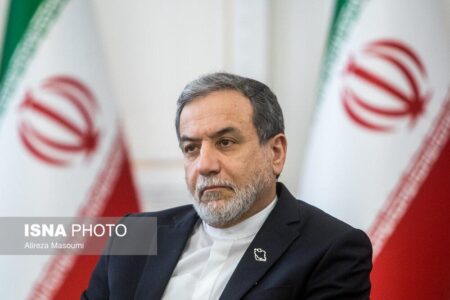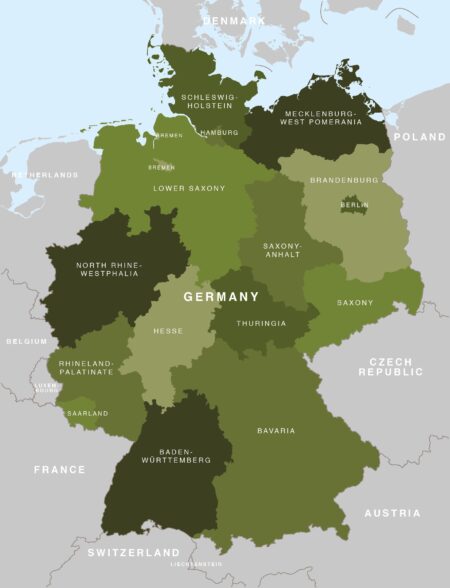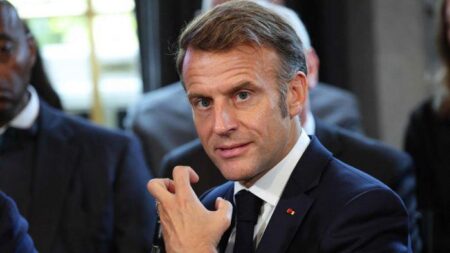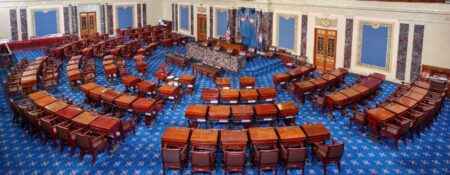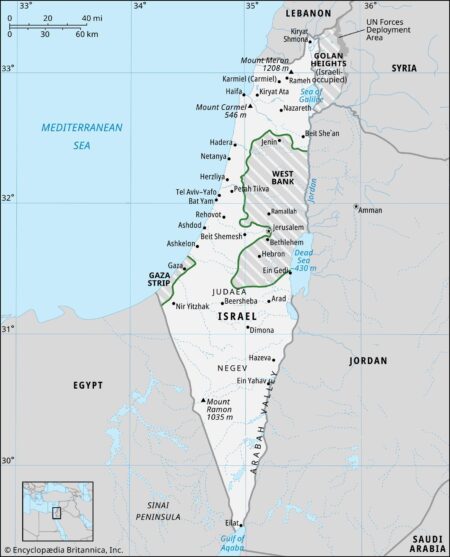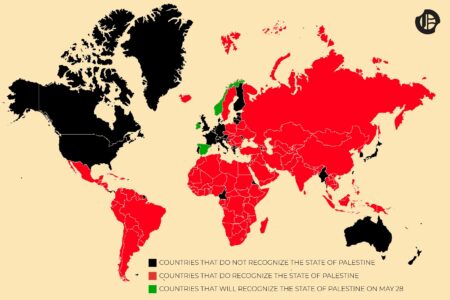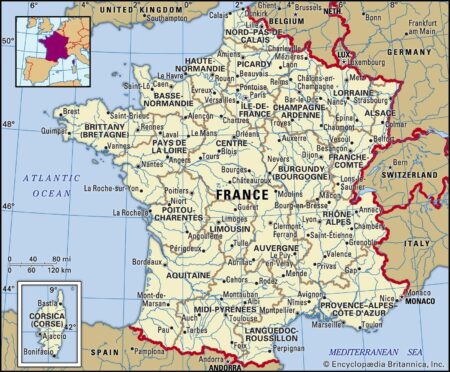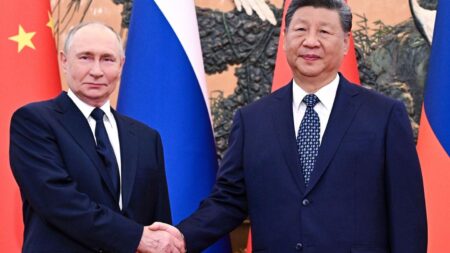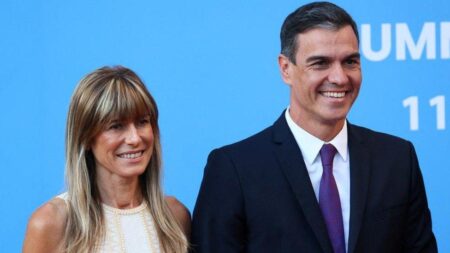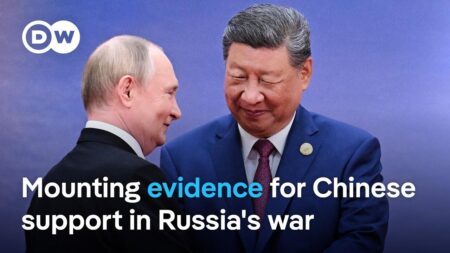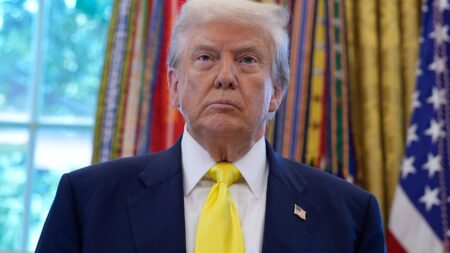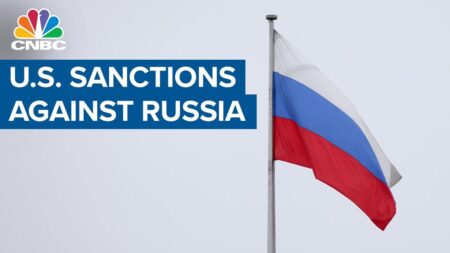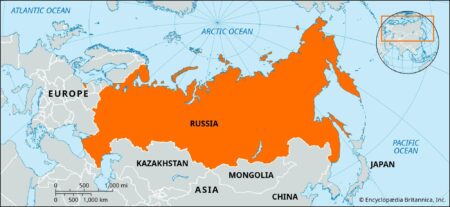China has intensified its criticism of Israel, boldly condemning its policies while forging stronger diplomatic ties with Palestinian leaders. Experts suggest that Beijing is strategically maneuvering to expand its influence in the region and challenge U.S. dominance in the Middle East
Browsing: foreign policy
FM Araghchi has delivered a powerful letter to the UN Secretary-General, vividly outlining Iran’s viewpoint on recent developments and passionately calling for renewed dialogue to strengthen global commitments, the Islamic Republic of Iran Ministry of Foreign Affairs confirmed
The United Kingdom, Australia, and Canada have officially recognized a Palestinian state, marking a groundbreaking shift in diplomatic relations and sending powerful ripples through Middle East peace efforts, CBS News reports
Germany’s recent weapon freeze has sparked a vibrant debate: is it just a symbolic political gesture, or does it signal a significant change in policy? Experts at the Stimson Center delve into the implications for global security and the future of arms control
In a recent interview with France 24, President Macron boldly addressed urgent global issues, emphasizing France’s strong stance on the Palestine conflict and its steadfast commitment to supporting Ukraine amid escalating tensions
Spain’s top diplomat strongly dismissed the Israeli leader’s vow to oppose a Palestinian state, asserting that the establishment of a Palestinian state is unavoidable. These remarks highlight the ongoing and deep-rooted challenges in securing peace in the Middle East
The Senate has just confirmed a leading China critic as the new U.S. ambassador to Argentina, signaling a bold strategic move amid escalating tensions with Beijing and America’s growing influence throughout the Global South
The U.K., Canada, and Australia have officially recognized Palestine as a state, marking a groundbreaking shift in international relations and sparking a wave of varied reactions from world leaders and diplomats, CBS News reports
Britain, Canada, and Australia have taken a historic step by officially recognizing a Palestinian state, signaling a dramatic shift in international diplomacy and deepening Israel’s global isolation, CNN reports. This bold decision underscores the growing wave of support for Palestinian sovereignty across the globe
The UK, Canada, Australia, and Portugal have taken a bold step by officially recognizing a Palestinian state, challenging long-standing diplomatic norms. In a fiery response, Israel’s Prime Minister outright rejected the move, insisting that such recognition “won’t happen,” further intensifying the already volatile situation
Australia’s recent recognition of Palestine marks a bold new chapter just ahead of the UN General Assembly. This groundbreaking move could transform diplomatic ties and spark renewed momentum toward achieving lasting peace in the Middle East
Japan is raising alarms over the weakening US-India partnership, cautioning that this could trigger regional instability and strategic setbacks. Tokyo views a strong US-India alliance as crucial to countering China’s growing influence throughout Asia
France’s President Macron has signaled that Europe is ready to swiftly reimpose sanctions on Iran, as tensions soar over Tehran’s nuclear program-underscoring the EU’s firm and unwavering stance. (Al Jazeera)
In a bold and daring move, China directly challenged the U.S. on trade and security, exposing cracks in American diplomacy like never before. This high-stakes standoff signals a dramatic shift in global power, with Beijing confidently asserting its place at the center of the world stage
Spain’s Prime Minister faces intense backlash after making provocative comments about Israel’s nuclear arsenal, with critics denouncing them as a “blatant genocidal threat.” These explosive remarks have sparked heated debate amid rising tensions in the Middle East
AP Exclusive: Russia and Vietnam are reportedly rerouting energy export profits in a clever bid to evade potential US sanctions tied to their arms deals, unveiling a strategic maneuver to outsmart international restrictions, according to sources
Former President Donald Trump announced an upcoming meeting with Chinese President Xi Jinping in South Korea next month, followed by a visit to China. These crucial talks promise to address urgent trade and diplomatic issues directly
Europe has unveiled a bold new package of sanctions set to cripple vital sectors of Russia’s economy, intensifying pressure amid rising geopolitical tensions. These powerful measures target the core of Moscow’s financial power and energy assets
Germany is carefully considering its position on the EU’s proposed sanctions against Israel, Finance Minister Christian Lindner revealed. At the same time, Chancellor Olaf Scholz emphasized the lively and ongoing discussions taking place throughout the bloc, Bloomberg reports
Russia has vowed a powerful retaliation against Japan’s latest sanctions, Reuters reports. This move further escalates the already tense relations between the two nations amid ongoing geopolitical conflicts and sanctions linked to the Ukraine crisis


